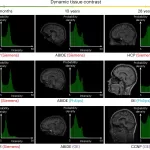Contrary to popular belief, a new study from the University of Jyväskylä in Finland suggests that running may not be the most effective way to shed pounds. Published in Frontiers in Sports and Active Living, the study found that while running can help prevent weight gain over time, it does not necessarily lead to significant weight loss.
The study, led by Dr. Simon Walker, examined the impact of lifelong athletic activities on body composition, particularly focusing on fat and muscle mass changes as individuals age. The research, which spanned two age groups—young (20-39 years) and older (70-89 years)—revealed that regular exercise, including running, did not fully mitigate the effects of aging on fat and muscle mass.
Researchers divided participants into groups based on the type of activities they engaged in, such as strength training, sprinting, and endurance activities like long-distance running. Dual-energy x-ray absorptiometry (DXA) scans were used to assess body composition, revealing that lifelong athletes tended to have less sarcopenic obesity (high body fat, but low muscle mass) compared to those who engaged in recreational activities.
While older athletes generally exhibited better body composition than their sedentary counterparts, even they experienced some increase in fat mass compared to younger individuals. This led researchers to conclude that exercise alone may not fully counteract the natural effects of aging on body composition.
Dr. Walker expressed his motivation to continue running despite the study’s findings, highlighting the importance of regular physical activity for overall health. He emphasized the need for a holistic approach to weight management, acknowledging that while running may not be the sole solution for significant weight loss, it offers numerous health benefits.
Kelsey Costa, a registered dietitian nutritionist, explained that the body’s adaptive mechanisms play a crucial role in weight management. Despite an initial decrease in fat mass from regular exercise, the body adjusts by reducing its basal metabolic rate to conserve energy, making weight loss more challenging.
Experts advise combining exercise with a balanced diet for effective weight management. Dr. Ari Jonisch emphasized the importance of dietary choices in creating a calorie deficit necessary for weight loss. He recommended a balanced diet rich in whole foods, lean proteins, fruits, vegetables, and complex carbohydrates, along with strength training to build muscle mass and boost metabolism.
In conclusion, while running offers numerous health benefits and can aid in weight management, it may not be the sole solution for significant weight loss. A comprehensive approach that combines regular exercise, a nutritious diet, and strength training is essential for long-term success in weight management.










